10 Best Asparagus Racemosus Preparations
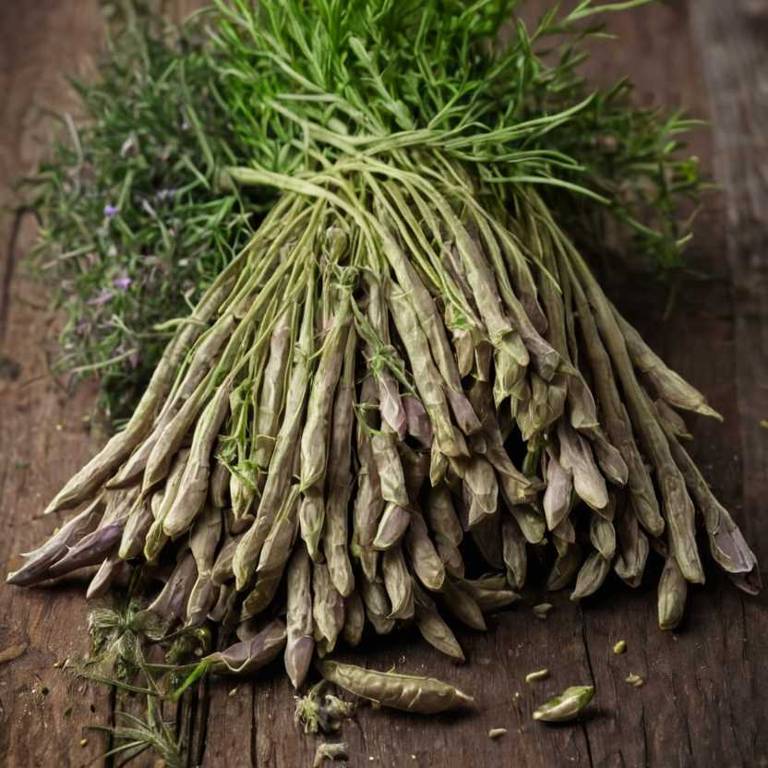
The best medicinal preparations of Asparagus racemosus are teas, decoctions, capsules, tinctures, and mucillages, each offering unique benefits for health.
Teas made from the dried roots or leaves are commonly used to support digestion and reduce inflammation.
Decoctions, which involve boiling the root, are valued for their potency in treating ailments like diabetes and respiratory issues.
Capsules provide a convenient and standardized form for daily supplementation.
Tinctures offer a concentrated dose, often used for quick absorption and therapeutic effects.
Mucillages, derived from the plant’s gel-like substance, are used to soothe the digestive tract and promote healing.
Below there's a list of the 10 best herbal preparations of asparagus racemosus for medicinal purposes.
- 1. Teas
- 2. Decoctions
- 3. Capsules
- 4. Tinctures
- 5. Mucillages
- 6. Oils
- 7. Creams
- 8. Juices
- 9. Lozenges
- 10. Oinments
1. Teas
Asparagus racemosus teas is commonly used to support digestive health, alleviate stress, and promote reproductive wellness.
This herbal preparation is often employed to treat ailments such as indigestion, diarrhea, anxiety, and female reproductive disorders like irregular menstruation and infertility. The bioactive constituents responsible for its medicinal properties include saponins, alkaloids, flavonoids, and polysaccharides, which contribute to its anti-inflammatory, antioxidant, and immunomodulatory effects. These compounds help in reducing inflammation, enhancing gut motility, and balancing hormonal functions.
As a result, Asparagus racemosus tea is valued in traditional medicine for its holistic healing benefits.
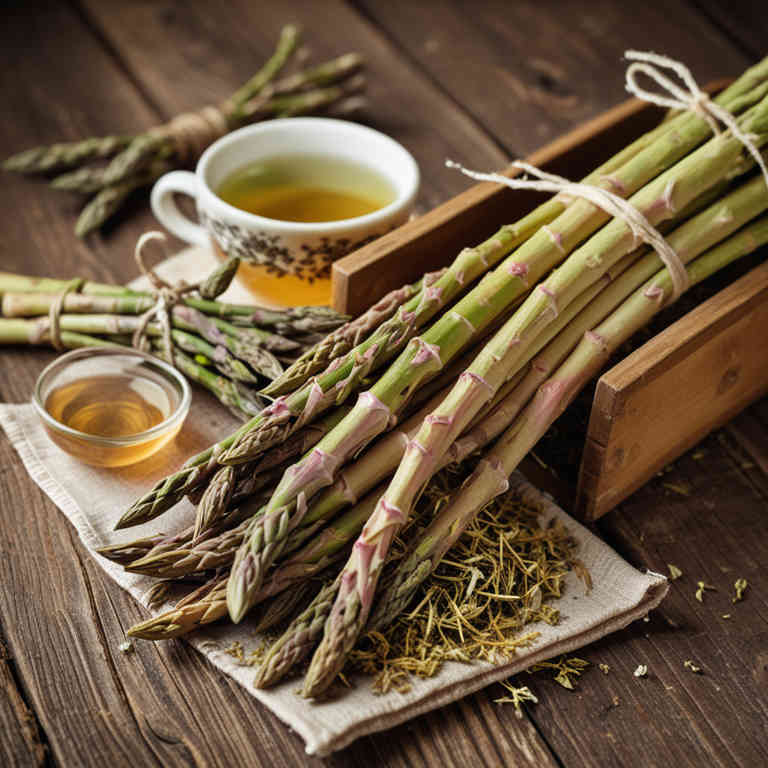
2. Decoctions
Asparagus racemosus decoctions is commonly used to treat digestive disorders, respiratory issues, and reproductive health conditions.
These decoctions are widely utilized in traditional medicine systems like Ayurveda for their calming and nourishing effects on the body. The most common ailments treated include gastritis, ulcers, asthma, and infertility. The bioactive constituents responsible for these medicinal properties include saponins, alkaloids, flavonoids, and polysaccharides, which exhibit anti-inflammatory, antioxidant, and immunomodulatory effects.
These compounds contribute to the plant's ability to support gut health, reduce inflammation, and enhance overall vitality.
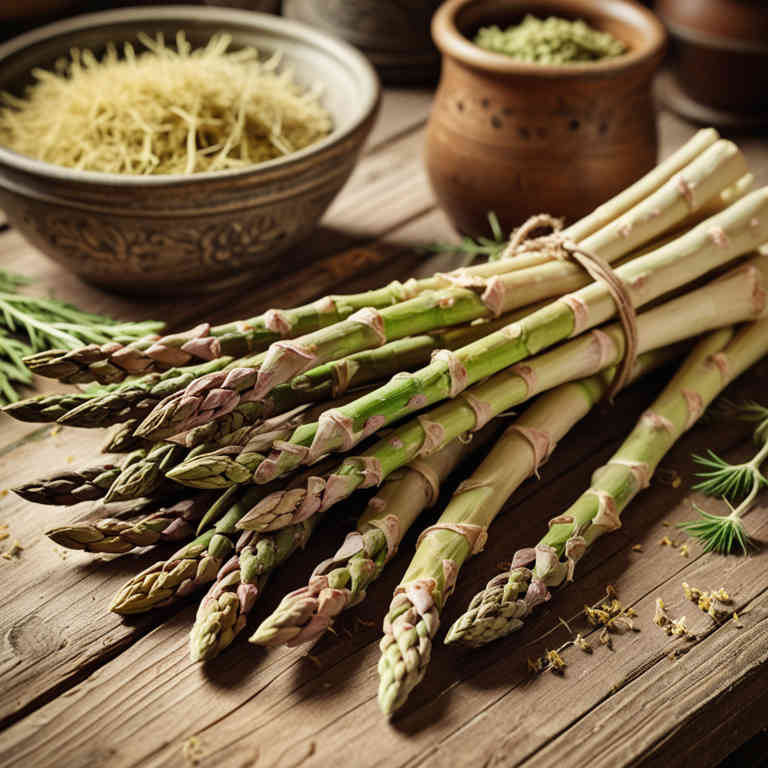
3. Capsules
Asparagus racemosus capsules is commonly used to support digestive health, enhance vitality, and promote urinary function.
They are frequently employed in traditional medicine to treat ailments such as digestive disorders, fatigue, and urinary tract infections. The capsules are also used to improve reproductive health and manage stress-related conditions. The bioactive constituents responsible for these effects include saponins, alkaloids, flavonoids, and polysaccharides, which exhibit antioxidant, anti-inflammatory, and immunomodulatory properties.
These compounds work synergistically to provide the plant's therapeutic benefits.

4. Tinctures
Asparagus racemosus tinctures is commonly used to support digestive health, reduce stress, and enhance vitality.
These preparations are often used to treat ailments such as gastrointestinal disorders, anxiety, and fatigue. The bioactive constituents responsible for these effects include saponins, alkaloids, flavonoids, and polysaccharides. These compounds exhibit anti-inflammatory, antioxidant, and immunomodulatory properties.
As a result, Asparagus racemosus tinctures are valued in traditional medicine for their holistic healing benefits.
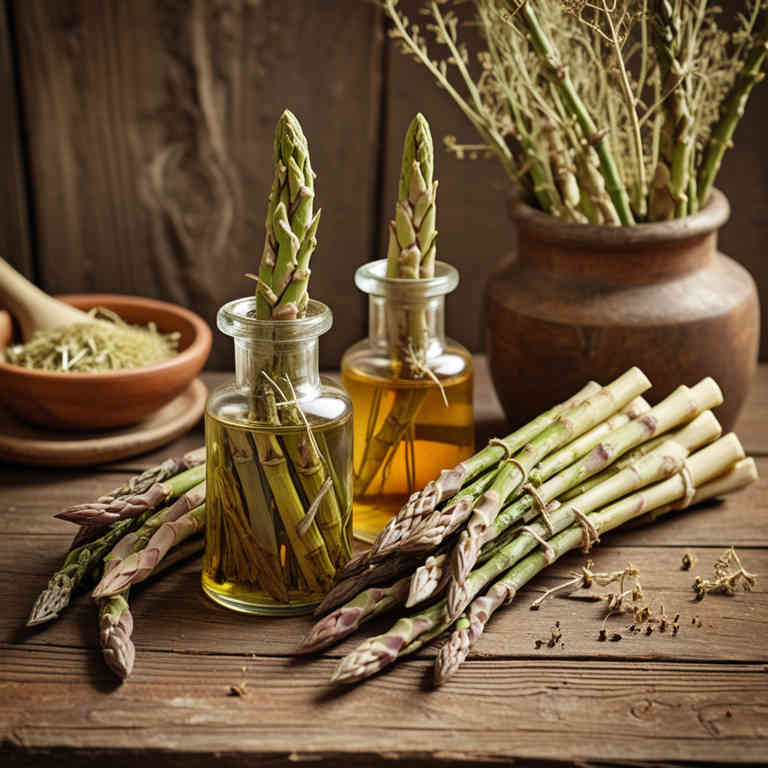
5. Mucillages
Asparagus racemosus mucillages is commonly used to treat digestive disorders, respiratory infections, and skin conditions due to its soothing and healing properties.
The mucillages are known for their ability to coat and protect mucous membranes, making them effective in alleviating symptoms of gastritis, ulcers, and coughs. They are also used in traditional medicine to support liver function and detoxification. The bioactive constituents responsible for these effects include polysaccharides, mucilage, alkaloids, and flavonoids, which exhibit anti-inflammatory, antimicrobial, and antioxidant activities.
These compounds contribute to the plant's reputation as a valuable remedy in both Ayurvedic and modern herbal practices.
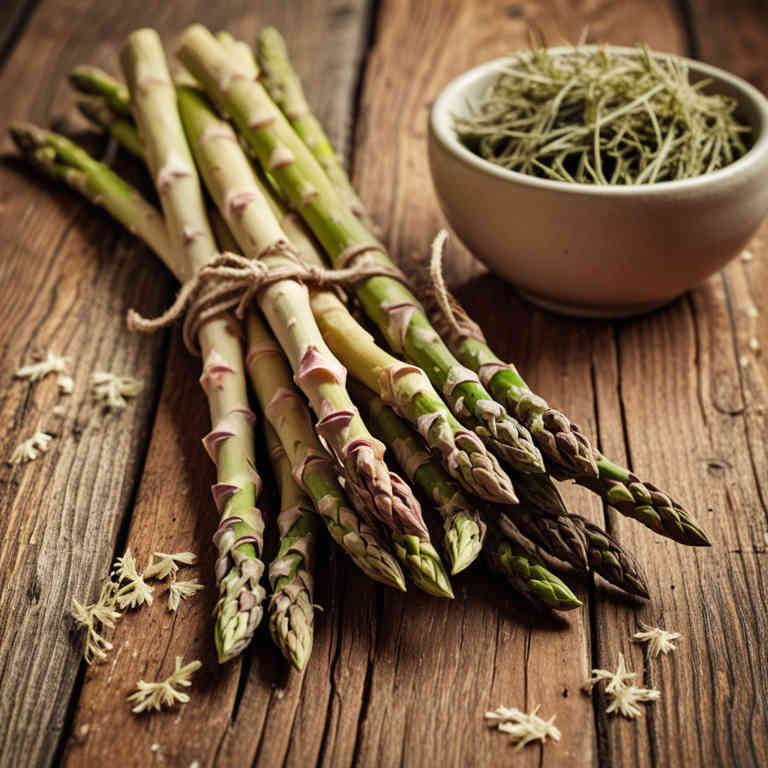
6. Oils
Asparagus racemosus oils is commonly used to treat digestive disorders, stress-related conditions, and reproductive health issues.
It is widely employed in traditional medicine to alleviate symptoms of indigestion, anxiety, and infertility. The oil is also used to support respiratory health and manage skin conditions. The bioactive constituents responsible for its medicinal properties include saponins, alkaloids, flavonoids, and steroidal compounds.
These compounds contribute to its anti-inflammatory, antioxidant, and hormonal regulatory effects.

7. Creams
Asparagus racemosus creams is commonly used to treat skin conditions and promote wound healing due to its anti-inflammatory and antimicrobial properties.
These creams are often applied topically to address issues such as eczema, psoriasis, and fungal infections. The most common medicinal uses include soothing skin irritations, reducing inflammation, and supporting the body's natural healing processes. The bioactive constituents responsible for these effects include saponins, flavonoids, alkaloids, and polysaccharides, which exhibit antioxidant, immunomodulatory, and antimicrobial activities.
These compounds contribute to the plant's reputation in traditional medicine for its therapeutic benefits.
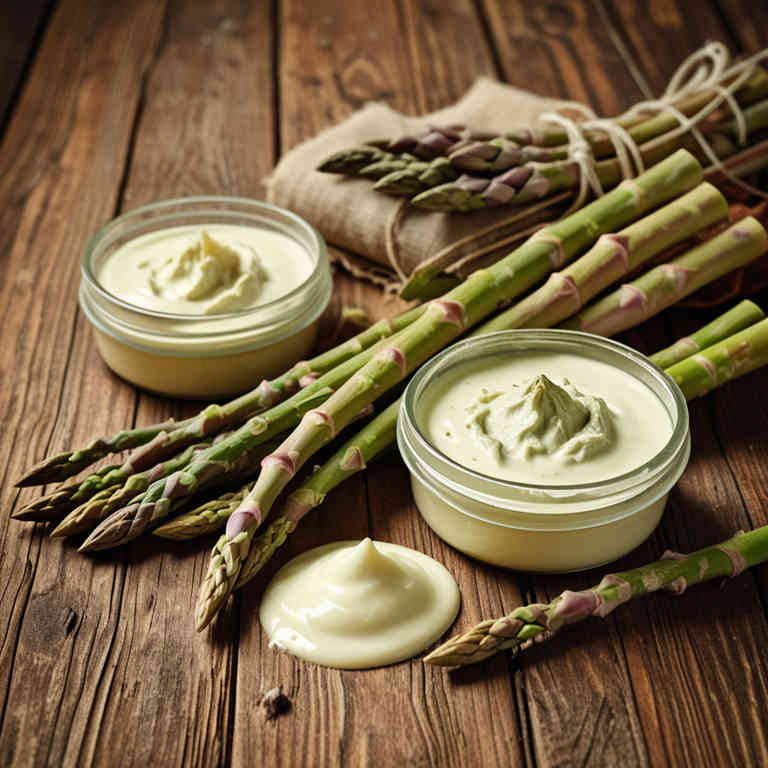
8. Juices
Asparagus racemosus juices is commonly used to treat digestive disorders, respiratory issues, and skin conditions.
It is widely regarded for its ability to alleviate symptoms of gastritis, ulcers, and asthma. The juice is also used in traditional medicine to support reproductive health and enhance vitality. The bioactive constituents responsible for its medicinal properties include saponins, flavonoids, alkaloids, and polysaccharides.
These compounds exhibit anti-inflammatory, antimicrobial, and antioxidant effects, contributing to its therapeutic value.

9. Lozenges
Asparagus racemosus lozenges is commonly used to treat respiratory and digestive disorders, as well as to support immune function.
They are often prescribed for conditions such as cough, asthma, indigestion, and inflammation. The lozenges are also used to alleviate symptoms of sore throat and to promote overall health and vitality. The medicinal properties of these lozenges are attributed to bioactive constituents such as saponins, alkaloids, flavonoids, and polysaccharides, which have antioxidant, anti-inflammatory, and immunomodulatory effects.
These compounds work synergistically to enhance the body's natural defenses and support therapeutic outcomes.

10. Oinments
Asparagus racemosus oinments is commonly used to treat skin disorders, digestive issues, and respiratory conditions.
These oinments are often applied topically for their anti-inflammatory and antimicrobial properties, helping to alleviate symptoms of eczema, psoriasis, and fungal infections. Internally, they are used to address gastrointestinal problems such as ulcers and indigestion. The most common medicinal uses include managing inflammation, enhancing immunity, and supporting reproductive health.
The bioactive constituents responsible for these effects include saponins, alkaloids, flavonoids, and steroidal compounds, which contribute to its anti-inflammatory, antioxidant, and antimicrobial properties.
